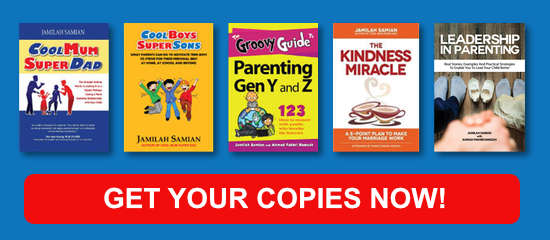A loved one who died unexpectedly. Sudden dismissal from employment. Discovering your spouse has an affair. All these have something in common – they bring about profound loss and cause the affected person(s) to grieve.
I learnt years ago how powerful the emotion of grief could be. A year after my father died, my classmates and I were discussing grief and loss in Psychology class when I suddenly found myself choking back tears of sadness. All of a sudden, memories of that morning when I received news of Abah‘s death flooded my mind. All along, I thought I had moved on.
Not everyone grieves the same way. A lady I knew well seemed not to mind much when her husband of more than five decades died. Only after the funeral, when the extended family and friends have left, did I begin to see how distraught she was. She did not cry buckets, but from her words and gestures I could see how dearly she missed him.
Life is fragile for you and I. Two words sum up how we could make a difference: Be there. Lend an ear, extend a helping hand, make your presence felt to help him or her get back on their feet. You might think, “She would rather be left alone than have a visitor.” But those who have experienced grief and loss would vouch that, as awkward as it gets, kind words to express support and understanding do bring some level of comfort. Better than avoiding it altogether. It’s the elephant in the room that needs to be addressed, especially when the loss was totally unexpected.
Unless you have experienced a similar kind of loss, perhaps it is best not to say, “I know exactly how you feel.” The son of a friend of mine had a major accident. Overnight, he changed from budding college student with a bright future to a bedridden patient who needed round-the-clock medical attention. I still don’t know which is more painful: to lose the child to death, or to lose the child you once knew. But the brave parents have accepted it as fate and moved on.
Saying “I’m sorry to hear …” helps, but you don’t have to stop at that. Consider to go beyond. A kind act does provide relief, reduce that overwhelming feeling, even if it’s temporary. Suppose your neighbour is a young mother who suddenly lost her husband, and she has to hunt for a job to support herself and her two little children, you could offer to babysit them so she could have a bit of time and space to search online for job opportunities.
Grieving is a natural but exhausting process – the bereaved might burst into tears unprovoked. And in case you’re wondering, men grieve, too. My cousin-in-law wept when my husband and I visited him upon his wife’s death. It’s not your fault. Neither is crying a sign of weakness. Crying helps to lighten the load, alleviate sadness over time, just as I have discovered upon losing my dad. At moments like this, listen. At times, the feeling of being heard brings more relief that having to hear a lengthy lecture on the wisdom of experiencing loss and grief, unless that’s what they ask of you. If appropriate, you could reminisce over the kindness of the departed. My cousin used to make wonderful cakes for me when I was growing up, even without me asking. I was lost for words when I visited her husband. I wish I had mentioned how generous she was.
Whatever you do, do not judge the other person. We are all different. We respond to loss differently, we grieve in our own way. Most of us would shed tears. But I have heard of a woman who sought relief in humour. I guess you don’t know someone is sad unless they told you. Whatever it is, be there. You might just be the timely saviour the bereaved needs to cope in their moment of difficulty, just so they know someone cares.



